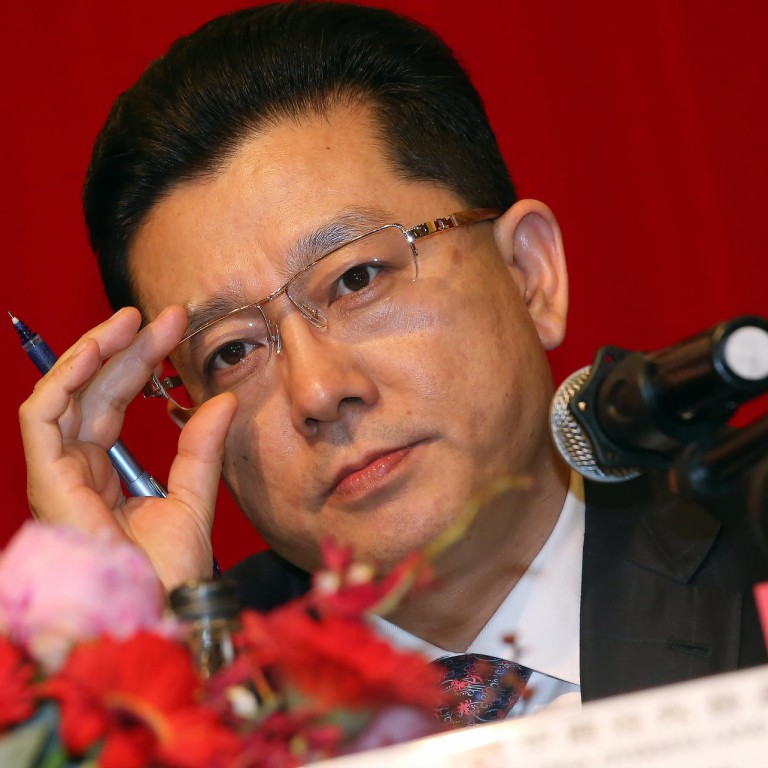
Developer China Overseas Land mulls hedging against yuan weakness
Mainland developer with highest exposure to foreign-currency debts says it will consider swaps to mitigate yuan depreciation risks
China Overseas Land & Investment, the mainland developer with the highest exposure to foreign-currency debts, on Wednesday said it would consider swaps to hedge against yuan depreciation risks but added that the recent devaluation was within control.
The country's fifth-largest developer in terms of sales had consolidated bank borrowings and guaranteed notes of HK$103.65 billion as of the end of June, of which 46.5 per cent was denominated in US dollars, 31.8 per cent in Hong Kong dollars, 2.3 per cent in British pounds and 19.4 per cent in yuan.
Of its total HK$78.61 billion in bank balances and cash, only 3.8 per cent was denominated in US dollars, 26.8 per cent in Hong Kong dollars and 69 per cent in yuan. Except for the offshore 3.85 billion yuan loan, all bank borrowings were unhedged, it said.
"Taking into account the potential increase in interest rates and the possible fluctuations in the exchange rate of the yuan, the group will prudently consider entering into currency and interest rate swap arrangements to minimise exposures if and when appropriate," China Overseas said in its interim report.
Its core profit, excluding HK$2.7 billion fair value gain, rose 20.3 per cent in the first half from a year earlier to HK$13.6 billion. The board declared an interim dividend of 20 HK cents per share. Its share prices pared earlier losses after the result announcement to trade up 0.4 per cent to HK$23 yesterday, compared to a 1.3 per cent loss in the Hang Seng Index.
Shares of China Overseas and peers, including China Resources Land, saw heavy sales recently by global investors amid worries about their exposure to yuan depreciation risks as well as the slowing mainland economy.
Beijing devalued the yuan in a surprise move last week. A weak yuan will increase the costs for mainland developers highly exposed to US dollar debts, although the recent widening and cheaper onshore fundraising channels will improve their debt structures in the longer term.
China Overseas chairman Hao Jianmin told reporters yesterday the state-owned developer had been taking stress tests against currency fluctuations and found the impact of the recent yuan weakness to be "within a controllable range".
Global rating agency Moody's said on Tuesday the yuan depreciation was credit negative for mainland property developers.
" We believe the majority of our rated developers with material foreign currency debt exposure could withstand up to a 10 per cent depreciation of the yuan relative to foreign currencies," it added.
Guangdong-based Country Garden, the mainland's seventh-biggest developer in terms of sales, said on Wednesday it had reduced the proportion of US dollar and HK dollar debts in the first half from 50 per cent to 43 per cent, and adopted foreign currency hedging instruments for better management of foreign exchange risks.
During the period, Country Garden reduced its weighted average borrowing cost to 7.07 per cent from 7.59 per cent six months earlier. Its core net profit grew 3.6 per cent to 4.88 billion yuan.
Additional reporting by Sandy Li



